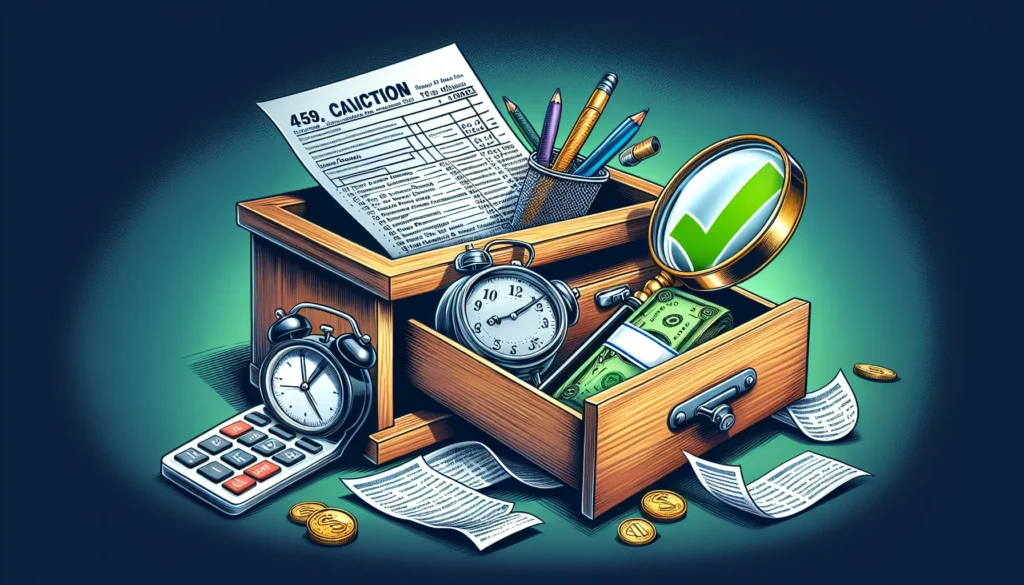Tax season can be a stressful time for many, but it’s also an opportunity to save money by taking advantage of available deductions. While most people are familiar with common deductions like mortgage interest and charitable donations, there are several lesser-known deductions that could significantly reduce your tax bill. Let’s explore ten often-overlooked tax deductions that might help you keep more money in your pocket.
Home Office Expenses
If you work from home, you may be eligible for a home office deduction. This applies to both self-employed individuals and employees who use a portion of their home exclusively for work. You can deduct a percentage of your rent or mortgage interest, utilities, and home insurance based on the size of your office space relative to your entire home.
To qualify, your home office must be used regularly and exclusively for work. This means you can’t claim a deduction for a guest room that doubles as an occasional workspace. Keep detailed records of your expenses and measurements to support your claim. Remember, this deduction can add up quickly, especially if you’ve been working on creating a personal budget that includes your home office costs.
State Sales Tax
If you live in a state without income tax, or if you made significant purchases during the year, you might benefit from deducting state sales tax instead of state income tax. This is particularly advantageous for those who bought a car, boat, or made other large purchases.
To claim this deduction, you’ll need to itemize your deductions instead of taking the standard deduction. Keep all your receipts throughout the year to maximize this benefit. This deduction can be especially helpful if you’ve been implementing strategies to save money on big-ticket items like vehicles or appliances.
Job Search Expenses
Looking for a new job in your current field? You might be able to deduct some of your job search expenses. This can include costs for resume preparation, travel expenses for interviews, and even employment agency fees. However, this deduction is only available if you’re searching for a job in your current occupation.
It’s important to note that you can’t claim this deduction if you’re looking for your first job or if there’s been a long break between your last job and your current search. Keep detailed records of all your job search-related expenses to make the most of this deduction.
Moving Expenses for Military Personnel
While the Tax Cuts and Jobs Act eliminated the moving expense deduction for most people, active-duty military members can still claim this deduction when relocating due to military orders. This includes expenses like packing, shipping, storage, and travel costs associated with the move.
If you’re a military member who has moved recently, make sure to keep all your receipts and documentation related to the move. This deduction can provide significant savings and help offset the costs associated with frequent relocations.
Health Insurance Premiums for Self-Employed Individuals
If you’re self-employed, you may be able to deduct your health insurance premiums, including those for dental and long-term care coverage. This deduction is particularly valuable because it’s taken as an adjustment to income rather than an itemized deduction, meaning you can claim it even if you take the standard deduction.
To qualify, you must not be eligible for health insurance through an employer or your spouse’s employer. This deduction can provide substantial savings, especially given the rising costs of healthcare. It’s an important consideration when managing your personal finances as a self-employed individual.
Student Loan Interest Paid by Parents
If you’re a parent who has been helping your child pay off their student loans, you might be able to claim the interest paid as a deduction. The IRS treats this situation as if your child paid you back, and then you made a gift to your child for the amount of the payments.
To qualify, your child must be legally obligated to pay the debt and not be claimed as a dependent on your tax return. This deduction can be claimed even if you don’t itemize, making it a valuable option for many parents supporting their children’s education.
Charitable Contributions of Goods
While many people remember to deduct cash donations to charity, fewer take advantage of deductions for donated goods. Items like clothing, furniture, and household goods given to qualified charitable organizations can be deducted based on their fair market value.
Be sure to get a receipt for your donations and keep a detailed list of the items you’ve given away. For donations valued at over $250, you’ll need written acknowledgment from the charity. This deduction not only helps reduce your tax bill but also encourages charitable giving, which can be a key part of a well-rounded personal budget.
Energy-Efficient Home Improvements
Making your home more energy-efficient can lead to tax savings. The Residential Renewable Energy Tax Credit allows you to claim a credit for a percentage of the cost of solar electric systems, solar water heaters, geothermal heat pumps, and small wind turbines installed in your home.
While this is a credit rather than a deduction, it can still significantly reduce your tax liability. Keep all receipts and certifications for your energy-efficient installations to claim this benefit. This credit not only helps you save on taxes but also contributes to long-term savings on your energy bills.
Retirement Savings Contributions Credit
Low and moderate-income taxpayers may be eligible for the Retirement Savings Contributions Credit, also known as the Saver’s Credit. This credit is available for contributions to IRAs, 401(k)s, and other qualified retirement plans.
The credit amount varies based on your income and filing status, but it can be up to 50% of your contributions, with a maximum credit of $1,000 ($2,000 if married filing jointly). This credit encourages retirement savings and can provide a significant tax benefit for eligible taxpayers.
Educator Expenses
If you’re a teacher or other eligible educator who works with students in kindergarten through 12th grade, you can deduct up to $250 of unreimbursed expenses for classroom supplies. This deduction is available even if you don’t itemize.
Eligible expenses include books, supplies, computer equipment, and other materials used in the classroom. If you and your spouse are both educators, you can deduct up to $500 on a joint return. This deduction recognizes the out-of-pocket expenses many educators incur to support their students’ learning.
By taking advantage of these often-overlooked deductions, you can potentially reduce your tax bill and keep more of your hard-earned money. Remember to keep accurate records and consult with a tax professional to ensure you’re claiming all the deductions you’re entitled to. Protecting your financial information is crucial during tax season, so be vigilant about safeguarding your personal data. With careful planning and attention to detail, you can navigate tax season more effectively and maximize your savings.
Frequently Asked Questions
What are some common tax deductions people often overlook?
Some often-overlooked tax deductions include home office expenses, state sales tax, job search expenses, health insurance premiums for self-employed individuals, and energy-efficient home improvements. These deductions can significantly reduce your tax bill if you qualify for them.
Can I deduct my home office expenses if I work from home?
Yes, you may be eligible for a home office deduction if you use a portion of your home exclusively and regularly for work. This applies to both self-employed individuals and employees. You can deduct a percentage of your rent or mortgage interest, utilities, and home insurance based on the size of your office space relative to your entire home.
Are there any tax deductions available for teachers?
Yes, educators who work with students in kindergarten through 12th grade can deduct up to $250 of unreimbursed expenses for classroom supplies. This deduction is available even if you don’t itemize. Eligible expenses include books, supplies, computer equipment, and other materials used in the classroom.
Can parents claim a deduction for paying their child’s student loan interest?
Parents who help pay their child’s student loans may be able to claim the interest paid as a deduction. To qualify, the child must be legally obligated to pay the debt and not be claimed as a dependent on the parent’s tax return. This deduction can be claimed even if you don’t itemize.
Is there a tax credit for making energy-efficient home improvements?
Yes, the Residential Renewable Energy Tax Credit allows homeowners to claim a credit for a percentage of the cost of certain energy-efficient installations, such as solar electric systems, solar water heaters, geothermal heat pumps, and small wind turbines. While this is a credit rather than a deduction, it can significantly reduce your tax liability.



